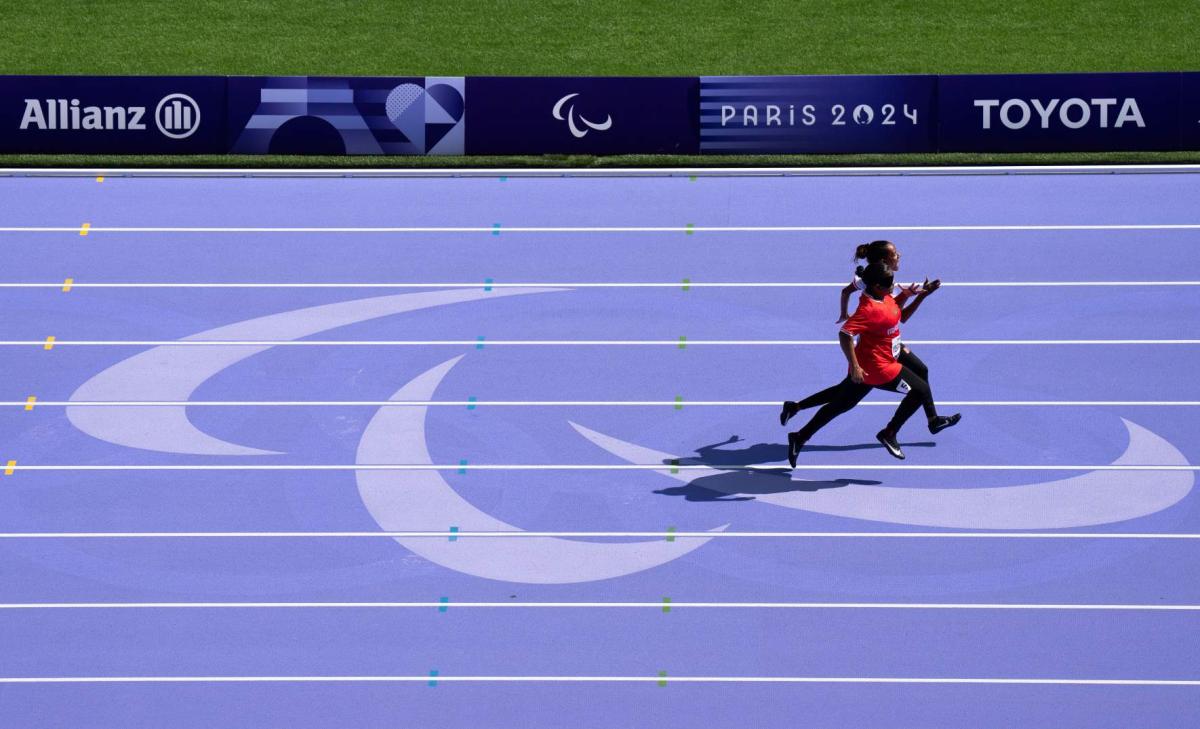Ghent University, in cooperation with IPC, secure grant for anti-doping study
The Ghent University, in cooperation with the International Paralympic Committee, has launched a study to investigate the use of eye drop medication typically used by athletes with a vision impairment 28 Apr 2025
The Ghent University, in cooperation with the International Paralympic Committee (IPC), has initiated a two-year study, supported by a World Anti-Doping Agency (WADA) research grant, to investigate the use of eye drop medication typically used by athletes with a vision impairment to treat glaucoma and ocular hypertension.
These eye drops contain dorzolamide and/or brinzolamide, which are carbonic anhydrase inhibitors, prohibited at all times according to the WADA Prohibited List (in the category of diuretics and masking agents). In anti-doping, masking agents can be used to conceal the presence of other banned substances used for intentional doping.
In recent years there has been a steady increase in the number of Para athletes testing positive for dorzolamide and brinzolamide. While ophthalmic use is a permitted route for these substances, a positive test result requires follow up work by the responsible anti-doping organisation to verify that the source of the positive test was the athlete’s use of eye drop medication.
Dorzolamide and brinzolamide can remain detectable in the body for a very long period, with the rate of metabolism varying depending on the method of administration.
This study, led by the Anti-Doping Laboratory (DoCoLab) at the Ghent University, aims to establish concentration levels that would allow differentiation between the legitimate medical use of these substances and their potential misuse in doping as a masking agent. This has the potential to change the way laboratories are required to report these findings for anti-doping purposes, where athletes who use eye drops for legitimate health reasons would return a negative test result, based on the level of concentration in their sample.
This study will also investigate the potential for athletes to test positive through contamination, for example, through skin-to-skin contact.
Peter Van Eenoo, Laboratory Director at the Ghent University said: “DoCoLab and the Ghent University are committed to performing research that helps to preserve the rights of every clean athlete, irrespective of health status.”
Jude Ellis, Head of Anti-Doping at the IPC, said: "The IPC is committed to clean and fair competition. Our anti-doping programme is central to maintaining the integrity and development of the Paralympic Movement, promoting respect for rules, fair competition, and clean sport worldwide.
"Substances like dorzolamide and brinzolamide are frequently prescribed to Para athletes with a vision impairment and the number of unintentional positive tests that occur as a result is a major concern for us. At the Paris 2024 Paralympic Games, we received more than 20 positive test reports. This causes unnecessary stress for athletes and places a significant administrative burden on the IPC, especially during a major sporting event.
“If carbonic anhydrase inhibitors are to remain on the Prohibited List in the future, we hope the findings of this study may support a change in the way laboratories report the results of analysis for these substances, based on the level of concentration. This will help ensure a level playing field for all athletes – where athletes with a vision impairment who use these substances for legitimate medical reasons will no longer be subject to an unnecessary results management process.
“With the LA28 Paralympic Games only a few years away we hope that as a result of this study, we are able to focus our resources on catching intentional dopers.”
In accordance with the IPC Anti-Doping Code, the IPC implemented one of its most comprehensive anti-doping programmes leading up to and during the Paris 2024 Paralympic Games. More than 1,700 athletes from 112 of the 169 competing delegations were tested at least once in the French capital.








